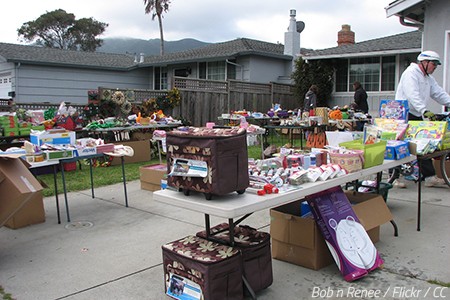In order to make an informed decision, you must look closely at all the advantages and disadvantages of moving to a cold state.
Is the upcoming big change something that you will enjoy thoroughly? Or it is something that you will come to hate as time passes?
The only way to know for sure is to move to the colder state and see for yourself. But moving house is a lot of hassle (it’s expensive too), so knowing what to expect in advance can help you tremendously in your final decision.
Here are the pros and cons of moving to a cold state so that you are truly prepared for what’s coming your way:
Pros of moving to a cold state
Generally, most people are moving away from the cold climate – they are moving to warmer states because of the obvious benefits that warm weather can have on the human body and mind.
Believe it or not, there are a number of advantages of moving to a cold state that you may have never known before. Too many people are moving to California, Texas, Arizona, Florida, and other Southern states for the long months of sunshine there, but colder states can also have somewhat surprising health benefits for anyone who wants to move there.
Here are the benefits of moving to a cold climate:
Cold weather burns more calories
When it’s cold outside, the human body has to work much harder in order to maintain its core body temperature of around 98.6°F (37°C). So, when you find yourself in a cold environment, your body will use a greater amount of energy to keep you warm and humidify the air you breathe when you’re out in the open.
As a result, you are likely to burn roughly 30% more calories than when it’s warm outside. So, it turns out that cold weather can help you in your efforts to lose excess body fat.
Cold weather helps you think more clearly
Colder temperatures are believed to help people think more clearly and tackle cognitive problems a bit more easily. So, what’s the scientific explanation behind this?
The brain requires glucose to function at an optimal level but when it’s warm or hot outside, our body uses more glucose to keep its core temperature down. That basically means that there’s less glucose left to power the brain in terms of pure cognitive functioning.
Therefore, while cold weather may boost your brain activity ever so slightly, you can’t expect to become a genius simply because you’ve moved to a colder state.
Cold climate alleviates outdoor allergies
No more outdoor allergies after the move.
Moving to a cold state will be good for you if you happen to suffer from allergies, especially allergies triggered by pollen – tree, grass, and weed pollen.
In fact, pollen counts don’t really exist in cold weather, especially when there’s snow outside. So, for people with outside allergies, the cold climate can be a blessing as it will enable them to stay allergy-free for most of the year.
It’s interesting to note that about 75% of Americans who are allergic to pollen are also allergic to ragweed, and ragweed thrives in warm and humid climates. And this basically means that moving to a colder state will mean no more ragweed – one of the strongest outdoor allergens of all.
Cold weather can help you sleep better
Another advantage of moving to a cold state is that you’re very likely to sleep longer and better thanks to the cold climate.
When you’re trying to fall asleep, the core temperature of the body lowers naturally. On a hot summer day, this can take up to 2 hours while it’s much faster in a colder environment.
When natural sunlight is gone during the shorter winter days, the body tends to go into sleep mode. All this can be a drawback when you’re trying to work during the day, but it’s definitely good for your sleep.
And there’s no denying that having a good night’s sleep (at least 8 hours of peaceful sleep) brings many benefits for a person, including a boost of the immune system, a better memory, reduced stress, improved mood, clearer thoughts, and so on.
Cold air can help prevent infections
While it’s true that the flu thrives in cold and dry air, it’s important to note that your immune system should be in better shape to fight infections in cold weather. Why?
The human immune system can get activated when it’s exposed to colder temperatures, meaning that your body should improve its ability to ward off infections more effectively once you move to a colder environment.
Of course, the immune system boost you’re likely to get when moving to a cold state doesn’t mean that you shouldn’t be extra careful not to get infected – you should still get your annual flu shot, wash your hands regularly with soap and water, avoid touching your eyes and mouth, get adequate sleep, and avoid people who you know or suspect that are sick.
Cold air can lower inflammations
Moving to a cold state can have somewhat surprising positive effects on your body as well. The colder air in your destination can work as an ice pack on an injury – it will generally reduce swellings and help alleviate aches and pains of various origins.
The colder temperatures outside will make the vessels in your skin less prone to redness and swelling as a direct result of the reduction of blood flow. Again, it’s similar to applying ice on an injured area in the body and getting almost instant relief from the pain.
Cold weather can strengthen your heart
Working out in a cold climate can help strengthen your heart.
Numerous studies show that a cold climate can prove to be beneficial for your heart. Why?
Winter workouts outdoors such as walking, running, or even fun activities such as playing in the snow will require a human’s heart to pump a greater amount of oxygenated blood to compensate for that physical activity and to make sure that the whole body maintains a core temperature that stays within healthy limits.
In fact, exercising outdoors in cold weather can make your heart muscles stronger thanks to the extra work the heart has to do. Thus said, you should still be careful not to exert yourself in a cold environment and risk putting too much stress on your heart.
Cold weather means much fewer insects
Another big advantage of moving to a cold state is that they will be fewer insects flying in the air.
It’s important to note that bugs such as mosquitoes and ticks are not only a great nuisance, but some of them spread bad viruses too such as the West Nile virus, Dengue virus, or Zika virus. And since most insects, including the disease-spreading ones, thrive in milder climates, your decision to move to a colder state will keep you much safer from being infected with one of those viruses and coming down with fever through a mosquito bite, for example.
And when you’re moving to a colder state from an area with a warm and wet climate, you should definitely appreciate the lack of bothersome insects in the air during the cold months of the year.
Cons of moving to a cold state
You shouldn’t get the impression that moving to a cold state has many advantages and almost no disadvantages. If that were true, people would not be moving to warmer states like they are.
There are also a great number of snowbirds – people who are moving to the warmer southern states just to escape the cold months in their places of origin. Once the winter passes, they return to their home states to enjoy the warmer months of the year.
So, moving to a cold state has also its share of drawbacks which you should know in order to make an informed decision.
Cold weather means shorter days
Living in a colder climate usually means shorter days as the sun sets early. While that fact can be a blessing in disguise and improve your sleep and increase your hours of sleep, it also means fewer hours of fun activities outside and less work done outside your home.
Of course, you can still go outside and have fun when the sun has set, but it’s just not the same feeling, and some people never really get used to the shortened winter days after moving to a cold state.
A cold climate can mean dangerous weather
A cold climate can be dangerous.
Battling through winters can be dangerous if proper care is not taken.
Icy sidewalks in winter do increase the risk of falls, which in turn can lead to fractures. Driving in winter conditions is always risky and patches of ice on the road or too much snow could sometimes result in car accidents. Winter storms can be very dangerous if one gets caught in one outside the protection of their home.
Also, in cold weather, some older adults face a greater risk of hypothermia – a dangerous condition in which the internal core temperature of the body becomes too low. That may happen when a person gets prolonged exposure to cold.
Cold weather usually means more work
Moving to a colder state will offer some hidden disadvantages as well… like having extra work around your house when the snow starts falling from the sky.
Wintertime will mean more work around the house – shoveling snow around the yard, pathways, driveways, and the house foundations. But that’s not all – after a heavy snowfall, you’ll also need to remove the accumulated snow from the roof of your house to avoid all sorts of structural problems.
You may not realize it at first, but moving to a state that’s notorious for its harsh winters will, sooner or later, force you to get up at least an hour earlier than your habitual wake-up time in order to dig your car out of the snow. And that’s not any fun now, is it?
Cold winters mean higher utility bills
Moving to an area with long and cold winters will automatically mean that you’ll have to pay more money to heat your home. In other words, you’ll have higher electricity bills during the cold months of the year.
Of course, moving to a warmer state will also get you to spend more money in the summer when you’ll be running your AC full time to cool down your home, but nothing beats an electricity bill during long spells of sub-zero temperatures.
Utility bills are probably the last thing on your mind when moving to a cold state but you should assess everything before reaching your final decision.
Long and cold winters require specialized equipment
Do you have what it takes to survive a long and harsh winter?
Moving to a cold state will also mean learning to survive the long winters there which will depend mostly on your frame of mind. If you want it to be fun, it can be fun… but survival in the wintertime will require some specific equipment as well.
First of all, you’re going to need to buy thick clothes such as winter jackets, sweaters, boots, hats, gloves, and so on. That’s especially relevant if you’re moving from a warm southern state. But you’ll also need various winter gear as well, both for cleaning out the snow around your property (snow shovels, snow blower, etc.) and cleaning snow, ice, and frost from your car.
And without a doubt, getting all that snow equipment will cost you money.
Cold weather can affect you on a psychological level
Interestingly enough, one of the disadvantages of moving to a cold state is that it can affect you psychologically.
It’s been proven that the lack of sunlight during the cold months of the year and the constant coldness can influence your mood, energy, sleep, concentration, and appetite. This condition is known as seasonal affective disorder (SAD) and its symptoms usually start in the fall and continue well into the winter months.
Also known as winter depression, the winter-onset SAD may disrupt your biological clock (your body’s internal clock) due to the reduced level of sunlight. Also, reduced sunlight can cause a drop in serotonin – a brain chemical that affects mood.
Click here to read more about Seasonal Affective Disorder (SAD).
See also: Pros and Cons of Moving to a Warmer State
The post Pros and Cons of Moving to a Cold State appeared first on The Moving Blog.






